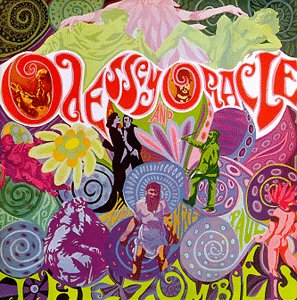
- Format: MP3

Odessey & Oracle was one of the flukiest (and best) albums of the 1960s, and one of the most enduring long-players to come out of the entire British psychedelic boom, mixing trippy melodies, ornate choruses, and lush Mellotron sounds with a solid hard rock base. But it was overlooked completely in England and barely got out in America (with a big push by Al Kooper, who was then a Columbia Records producer); and it was neglected in the U.S. until the single "Time of the Season," culled from the album, topped the charts nearly two years after it was recorded, by which time the group was long disbanded. Ironically, at the time of its recording in the summer of 1967, permanency was not much on the minds of the band members. Odessey & Oracle was intended as a final statement, a bold last hurrah, having worked hard for three years only to see the quality of their gigs decline as the hits stopped coming. The results are consistently pleasing, surprising, and challenging: "Hung Up on a Dream" and "Changes" are some of the most powerful psychedelic pop/rock ever heard out of England, with a solid rhythm section, a hot Mellotron sound, and chiming, hard guitar, as well as highly melodic piano; "Changes" also benefits from radiant singing. "This Will Be Our Year" makes use of trumpets (one of the very few instances of real overdubbing) in a manner reminiscent of "Penny Lane"; and then there's "Time of the Season," the most well-known song in their output and a white soul classic. Not all of the album is that inspired, but it's all consistently interesting and very good listening, and superior to most other psychedelic albums this side of the Beatles' best and Pink Floyd's early work. Indeed, the only complaint one might have about the original LP is its relatively short running time, barely over 30 minutes, but even that's refreshing in an era where most musicians took their (and our) time making their point, and most of the CD reissues have bonus tracks to fill out the space available.